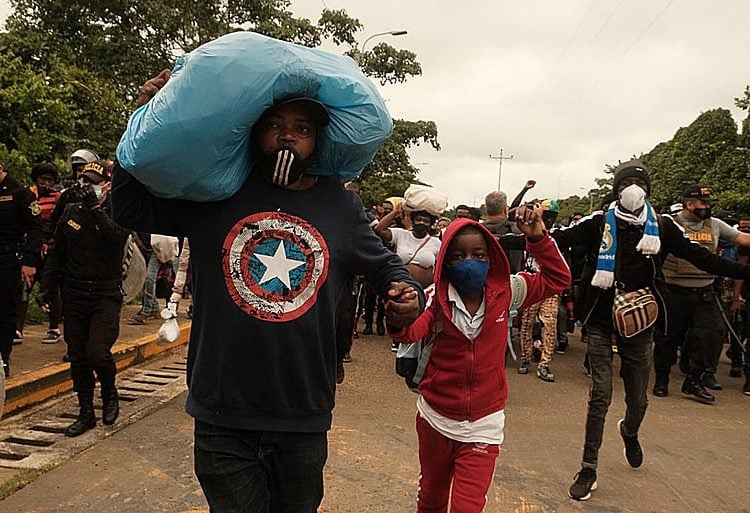For more than ten days, there has been a conflict on the border between Brazil and Peru, in which Haitian immigrants are trying to leave Brazilian territory, but due to the closure of the crossing are being prevented from making the journey.
On Monday, February 1st, the Brazilian justice system did not authorize the clearing of the Integration Bridge, located between the cities of Assis Brasil, in the state of Acre, and Iñapari, Peru, where about 60 immigrants, mainly Haitians, are blockading the border.
The justice department rejected a request presented by the federal government last Friday (26th), which maintains that the blockade of the bridge is a risk to national security, and has created economic damage to the region.
The provisional decision by the 2nd Federal Civil and Criminal Court, questions the federal government about what contingencies it is offering to the families that occupy the area, and is demanding a removal and resettlement plan for the occupants – in the event of an eviction.
"The federal government did not relate what measures it has taken so far, nor what it intends to do to try to resolve the problems that arose", says the decision, which requires a response from the Brazilian government on the matter in 48 hours.
The Public Prosecutor's Office and the Public Defender's Office criticized the federal government's lack of diplomatic and humanitarian efforts in seeking to resolve the problem, relying solely on the use of force.
The institution highlights that at least 40% of the immigrants who are in the border area are women and children.
Until now, the most effective measure undertaken by the federal government was to authorize, through the Ministry of Justice and Public Security, the use of the army in the state of Acre for 60 days, to lend support to state police forces. Currently, there are 12 military personnel in the region.
"Our demand is that a hearing be held so that migrants can speak and seek a friendly resolution to the conflict, in addition to the need of guaranteeing social assistance", says lawyer João Chaves, who is heading to the border to participate in the talks.
The migration crisis in the Assis Brazil municipality
On February 16th, some 400 immigrants tried to leave Brazil and enter the city of Iñapari, where they were violently expelled by the Peruvian police.
Peru does not allow the entry of people coming from countries where new strains of the coronavirus circulate. Currently, the country only allows the passage of food and fuel trucks.
With the occupation of the bridge by these families, vehicle traffic has been interrupted. Only on the Peruvian side, 37 trucks are stuck hauling perishable products.
Part of the families who agreed to leave the bridge and return to the Brazilian side, are now staying in accommodations offered by the Assis Brasil mayor's office.
In addition to the collapse of the municipality's social assistance network and the overcrowding of shelters, which are currently housing about 400 people, Assis Brazil has the highest rate of covid-19 infections in the state of Acre. The town has 7,417 inhabitants and 1,119 confirmed cases of the disease.
Last week, President Jair Bolsonaro even visited Acre to fly over areas flooded by rivers, but did not comment on the immigration impasse on the border region.
What the Ministry of Foreign Relations is saying
In a statement sent to Brasil de Fato, the Ministry of Foreign Relations says that it continues to maintain "regular contact with Peruvian authorities on the issue" and that "they have reaffirmed the closure of the land border to non-resident foreigners into their country’s territory".
The Ministry also claims that negotiations with the Peruvian government are being coordinated through an inter-ministerial group.




